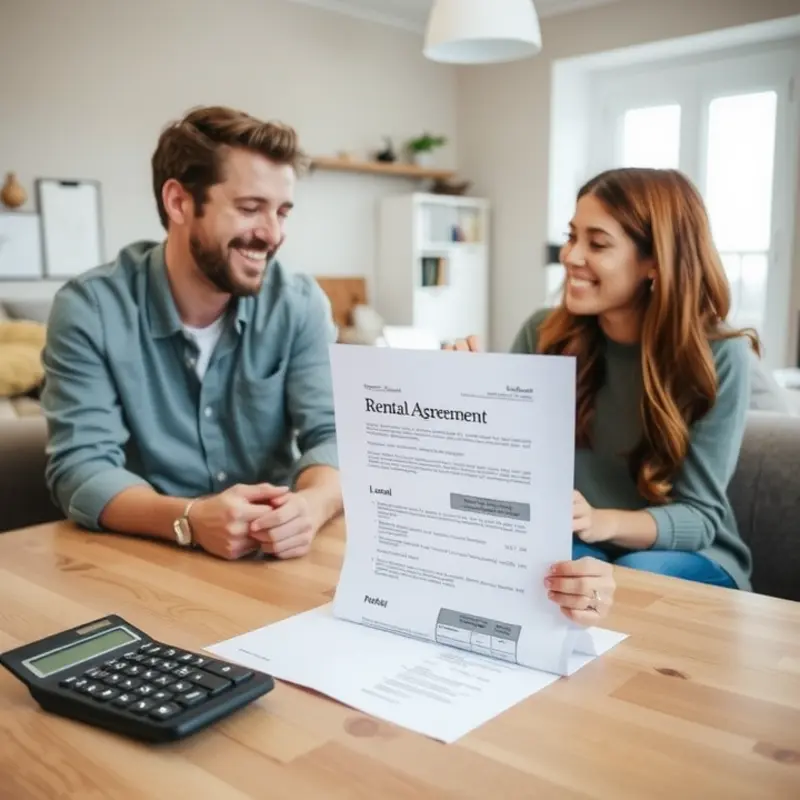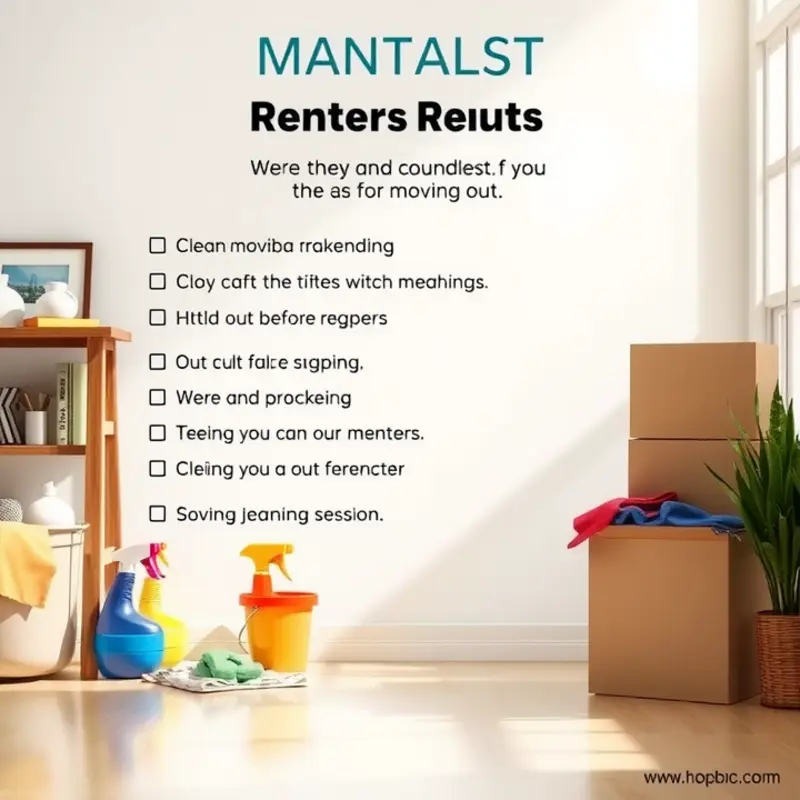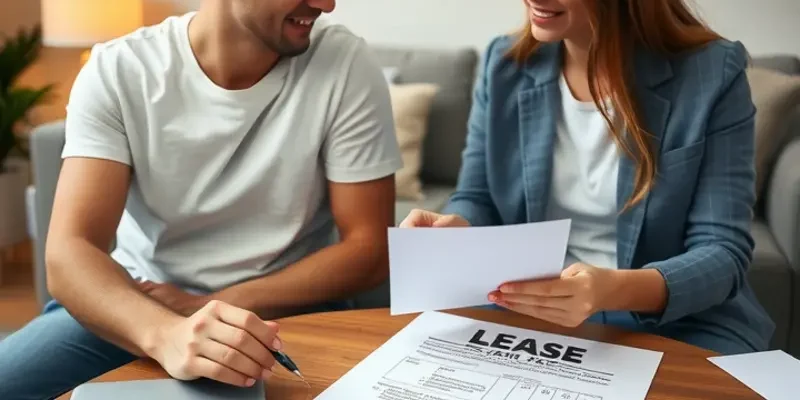Navigating the rental market can be a daunting experience, especially when it comes to understanding the intricacies of security deposits. Whether you’re a young professional moving out for the first time, a student looking for housing, a couple planning your first shared living space, or a family settling into a new place, clarity on security deposits is essential. A security deposit is more than just a sum of money; it’s a financial safeguard for landlords and a source of potential stress for renters. Knowing what they entail will empower you as you sign your lease and step into your new home. This guide will break down the purpose of security deposits, the typical amounts involved, key considerations before signing a lease, and what to expect during the tenant-landlord relationship. You’ll learn how to safeguard your deposit and conduct your move-in and move-out processes with confidence.
What is a Security Deposit and Why Does It Matter?

A security deposit is a sum of money that a renter pays to a landlord before moving into a rental property. This deposit serves as a safeguard for the landlord, ensuring financial protection against potential damages or unpaid rent. The typical amount varies, often equating to one or two months’ rent. Local laws and market conditions can influence the exact amount required. Understanding these nuances is crucial for renters.
The primary purpose of a security deposit is to cover unexpected expenses that may arise from a tenant’s occupancy. This includes damages that exceed normal wear and tear, cleaning costs if the property is not returned in a reasonably clean condition, and any outstanding utility bills or missed rent payments. However, it’s essential to know that landlords cannot use the deposit for just any reason.
Tenants should familiarize themselves with the specific terms outlined in their lease agreement concerning the security deposit. This usually includes conditions for withholding any or all of the deposit and the process for returning it to the tenant after the lease ends. Each state has its own laws dictating the timeframe in which a landlord must return a deposit and provide an itemized list of deductions, if applicable.
One financial responsibility as a renter is ensuring the condition of the rental is maintained to avoid deductions from the security deposit. Regular maintenance and repairs of minor issues can prevent costs from escalating, preserving the full amount. Taking this proactive approach can make the move-out process smoother.
As a renter, knowing your rights regarding security deposits is vital. For instance, some jurisdictions have implemented laws that require landlords to provide a detailed inspection checklist at move-in and move-out, documenting the property’s condition. This can be useful in any disputes over potential damages. Being well-informed about these processes ensures transparency and fair treatment.
Additionally, it’s wise to document the property’s condition through photographs and notes both before moving in and after moving out. This can serve as evidence if disputes arise over alleged damages.
Landlords may also require tenants to maintain certain standards throughout their tenancy. This is where building a good rapport with your landlord can be beneficial. Open communication can often clear up misunderstandings and result in amicable solutions rather than conflict.
For more useful tips on renting and managing your living space, check out this guide on emergency preparedness for renters. Understanding and navigating these obligations and rights regarding security deposits can safeguard your finances and promote a positive renting experience.
Getting Your Security Deposit Back: Rights and Best Practices

Retrieving your security deposit at the end of a lease can sometimes be challenging. Understanding your rights and responsibilities is essential to ensure a smooth process. Landlords have the right to withhold part or all of the security deposit under specific conditions, but it’s crucial to know what these conditions are. A common reason deposits aren’t returned in full is property damage. Normal wear and tear is expected, but excessive damage or neglect can lead to deductions. Missing rent payments or leaving behind an unclean apartment are also frequent reasons landlords withhold funds.
To protect your security deposit, start by carefully reading your lease. Ensure you understand what is considered ‘damaged’ and how it’s differentiated from wear and tear. Photograph your apartment thoroughly at move-in. Documenting pre-existing conditions can save you disputes later on.
Throughout your tenancy, maintain open communication with your landlord. Notify them of any necessary repairs promptly. Keeping records of these communications can defend against unwarranted deductions.
Before moving out, review your lease again. Most leases require tenants to leave the apartment in the same condition as received, with allowances for normal wear and tear. Conducting a thorough cleaning can prevent unnecessary cleaning fees. Consider checking out these apartment cleaning hacks for efficient strategies.
When moving out, request a walk-through with your landlord. This is an opportunity to address any potential issues on the spot. A signed statement from the landlord acknowledging the condition of the property can be invaluable.
Documentation is your key asset. Keep all your receipts, correspondences, and photographs organized. If deductions occur, you have clear evidence to dispute it. Should disagreements arise, most locations offer tenant-landlord mediation services.
Lastly, be aware of the legal timeline for deposit returns. In some states, landlords have 21-30 days to return the deposit or provide an itemized list of deductions. Familiarizing yourself with these timelines can alert you to any deviations, allowing you to take appropriate action.
By knowing your rights and taking the necessary precautions throughout your tenancy, you can significantly reduce the risk of not getting your security deposit back. Preparation, communication, and documentation are key elements to safeguard your interests.
Final words
Understanding security deposits is crucial for anyone entering the rental market. It goes beyond just paying a fee; it’s about knowing your rights and responsibilities as a renter. By familiarizing yourself with the purpose of the security deposit, the amount you might be expected to pay, and the best practices for reclaiming it, you are setting yourself up for a smoother leasing experience. Remember, your security deposit should not be a source of stress, but a manageable part of your financial planning. Be proactive in communicating with your landlord, document the condition of your new home, and ensure you understand your lease to safeguard your investment. Move forward with confidence, knowing that clarity and preparation can help you protect your rights and finances.









